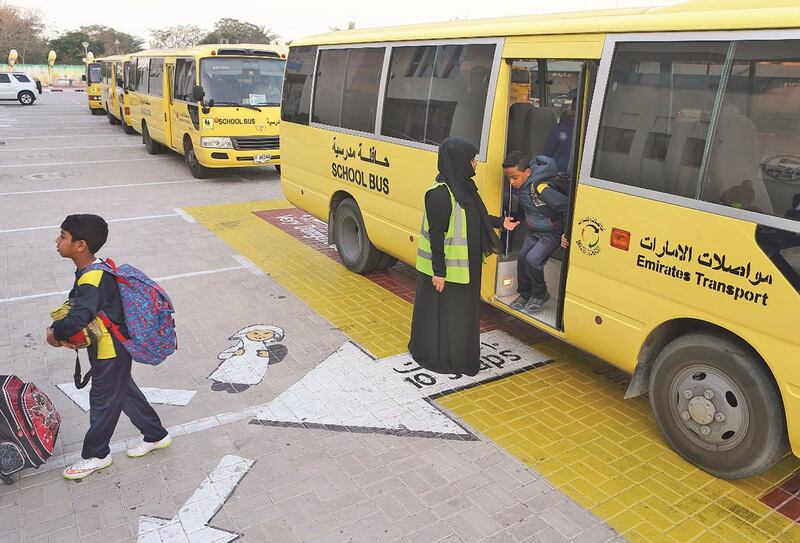Private schools are being inspected by Dubai's education regulator as part of efforts to ensure standards are up to scratch.
The Knowledge and Human Development Authority’s (KHDA) on Sunday announced that a number of new schools will be visited for the first time.
In Dubai, where private schools are regulated by the KHDA, schools are inspected once annually.
However, new schools are exempt from inspections during their first three years of operation.
The authority said seven schools that have reached their three-year anniversary will be inspected this year as part of the 10th cycle of school inspections, which began last week.
These seven include the Indian-curriculum Amled School, the International Baccalaureate-curriculum Swiss International Scientific School, and the British National Curriculum schools Hartland International School, Dovecote Green Primary School, St. Mary Catholic High School Dubai – Al Muhaisnah, Ranches Primary School and Dubai British School Jumeirah Park.
A total of 166 private schools will be inspected by KHDA. The emirate is home to 185 private schools catering to 273,599 pupils.
"Inspections are an important tool that allow schools to improve the quality of education they offer,” said Fatma Belrehif, CEO of the KHDA's Dubai School Inspection Bureau.
“After nine years of inspections in Dubai, we have seen an increase in the number of students attending schools that are judged to be good or better.”
The UAE Ministry of Education standardised school inspections across the country with the introduction of the UAE School Inspection Framework in 2015. The framework “has allowed us to unify our efforts towards achieving UAE National Agenda goals,” said Ms Belrehif.
“This year, the school inspections will place a special emphasis on UAE National Agenda, social studies, innovation, Emirati students, moral education and special education needs. Schools will be evaluated in line with performance standards and performance indicators detailed in the UAE School Inspection Framework.”
The school inspection bureau has published a 28-page School Inspection Supplement detailing the assessment criteria to guide schools. The guide is available on KHDA’s website.
A school’s final inspection rating is used by the KHDA to determine how much the school may raise its annual fees for the following academic year. Generally, the higher a school is rated, the more it can charge. The reports generated from the inspections are also published online to give the public an opportunity to read about each schools’ strengths and weaknesses. The reports also contain demographic data about each school.
Last year, the KHDA inspected 159 of its 185 private schools. Sixteen schools were rated outstanding, 14 very good, 69 good, 50 acceptable and 10 weak.






